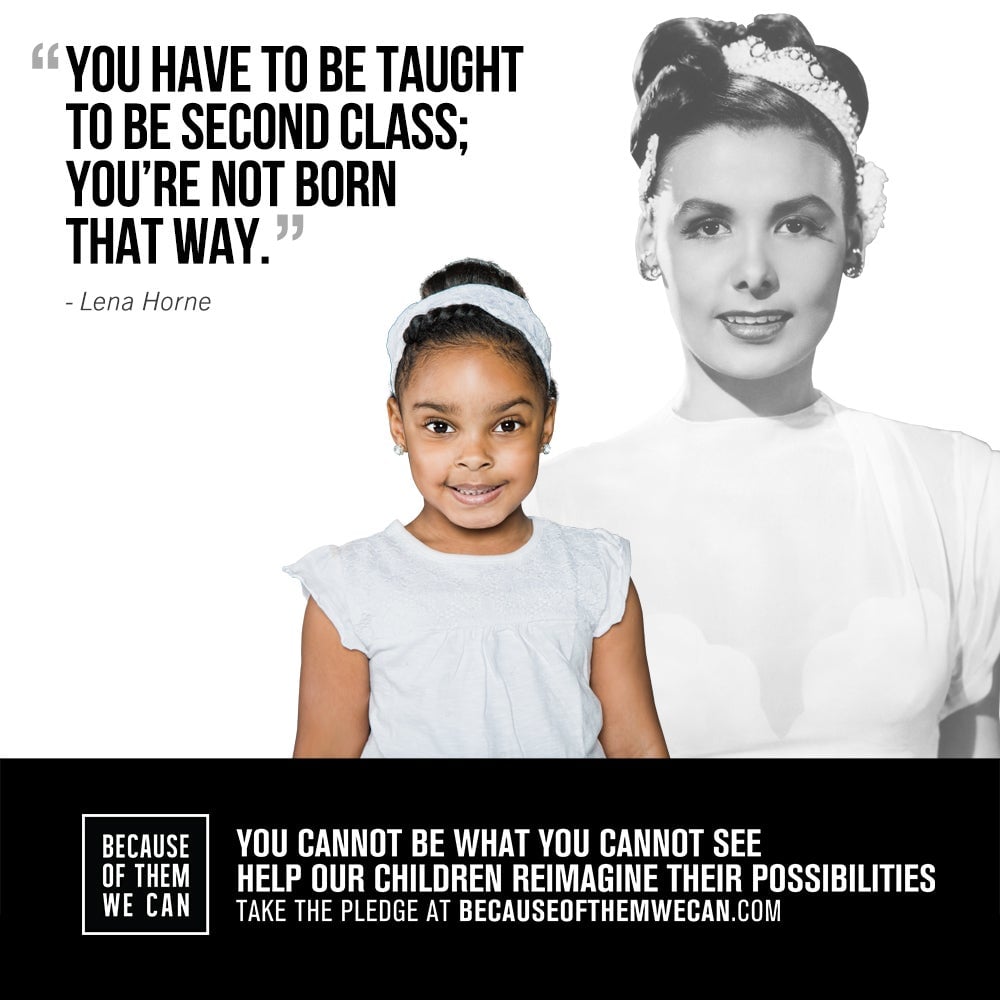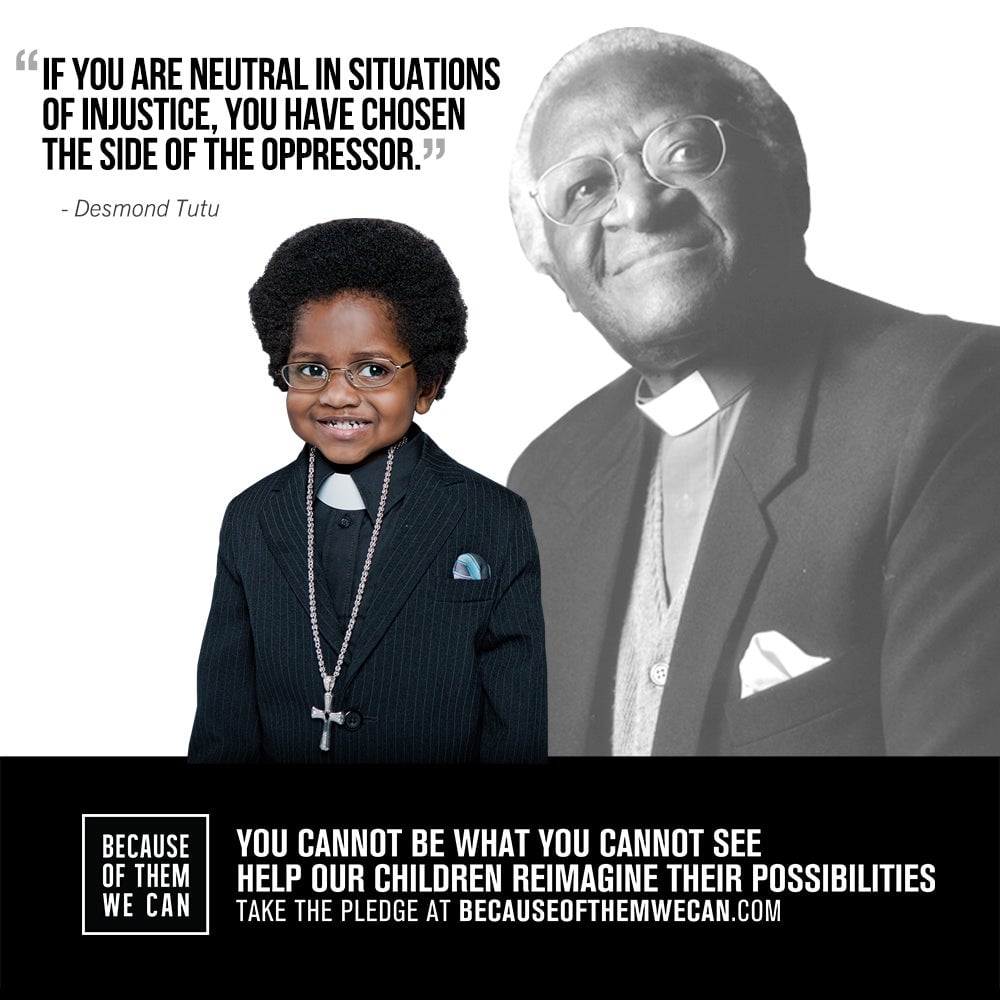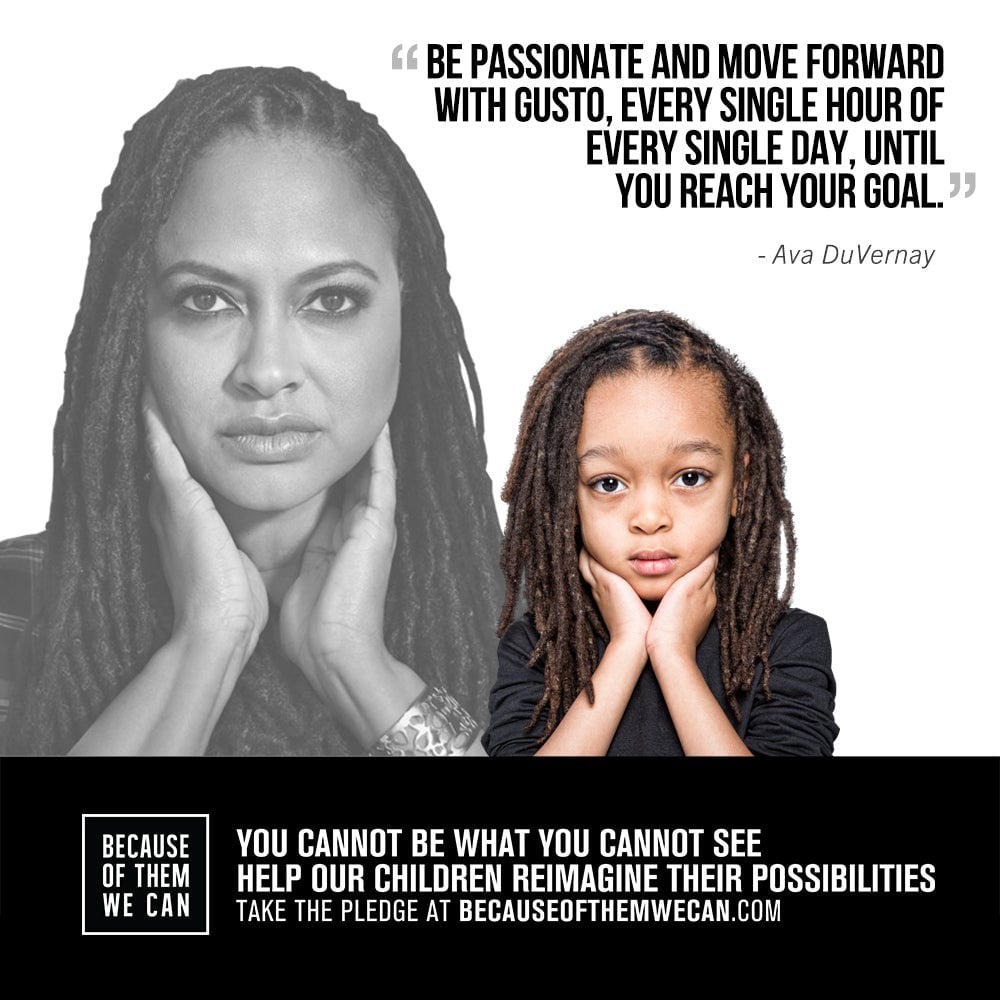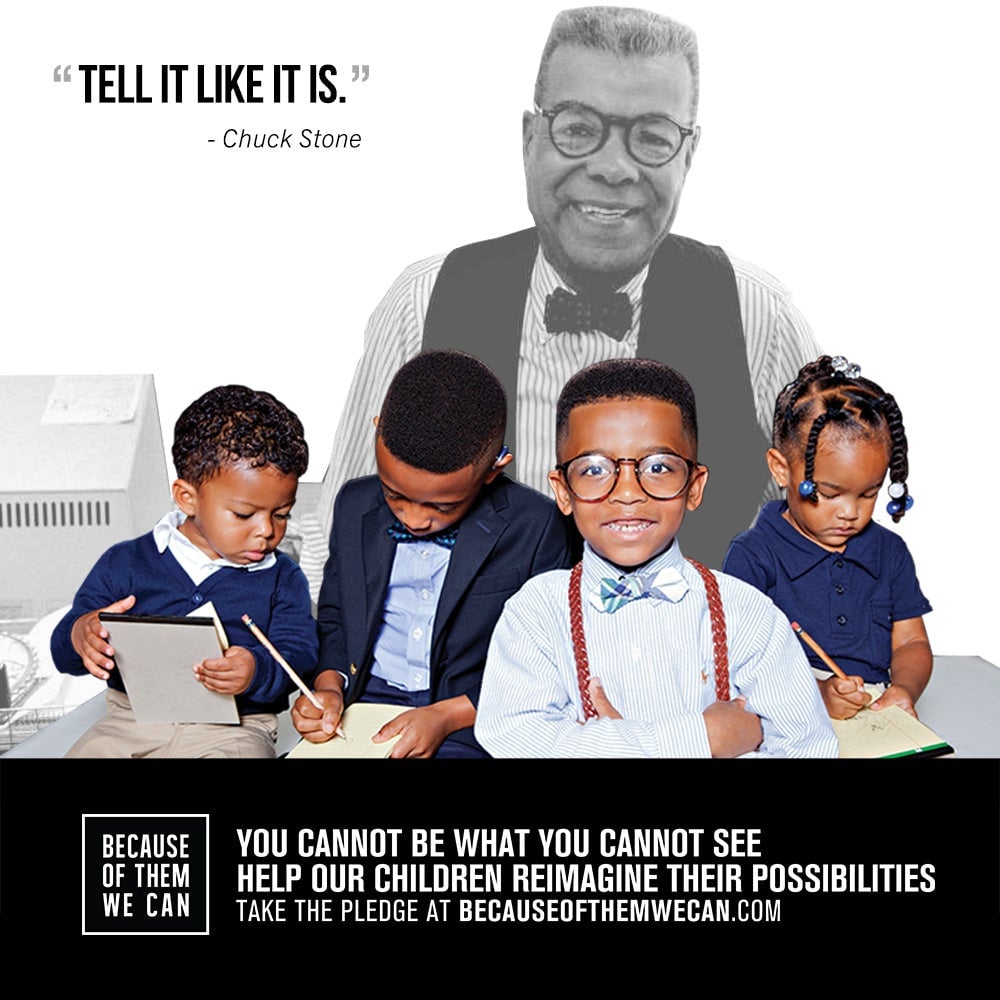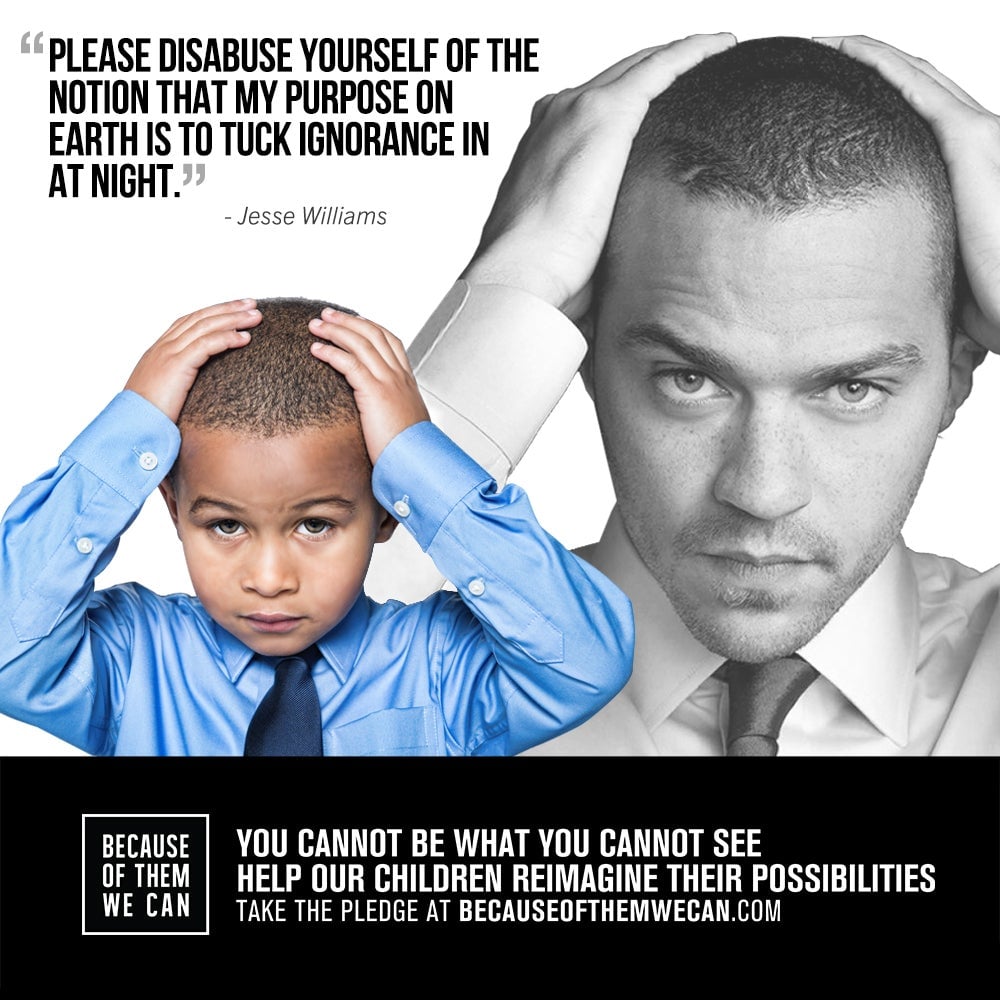Kids dress up as the African American leaders you won’t hear about this Black History Month
Every February, educators and activists scramble to make the most out of Black History Month, the 30-odd days each year when America nods to the accomplishments of notable African Americans. One month is hardly sufficient to honor all of the contributions that African Americans have made to the country. So, many well-meaning programs inevitably return to the same list of well-worn names: Martin Luther King Jr., Rosa Parks, Malcolm X.


Every February, educators and activists scramble to make the most out of Black History Month, the 30-odd days each year when America nods to the accomplishments of notable African Americans. One month is hardly sufficient to honor all of the contributions that African Americans have made to the country. So, many well-meaning programs inevitably return to the same list of well-worn names: Martin Luther King Jr., Rosa Parks, Malcolm X.
When Eunique Jones Gibson’s son was born in 2008, she knew she didn’t want him to grow up in a country that has consistently ignored and oversimplified his culture and heritage. Undaunted, the photographer and businesswoman decided that she would start her own Black History Month project with the aim of educating the next generation of black Americans about their rich cultural and political history, a history mainstream sources were quick to gloss over—or worse, get wrong.
“I am always hypersensitive to the ways in which black people are represented in the media and the stereotypes that are born and fed as a result,” Gibson told Quartz. “Specifically, how these portrayals will impact how my own sons are viewed and treated when they go out into the world. It is a constant concern that I believe all parents of brown babies have. Especially since these stereotypes are often exacerbated by pop culture’s obsession with exploiting a small fragment of the culture which doesn’t provide an accurate representation of who we are.”
The Because of Them We Can campaign was founded in 2013, when Gibson began photographing young children dressed as important black figures and shared the images on social media. It quickly became a viral sensation, and Gibson quit her job in order to devote herself to the project full time. This year, Gibson’s team released a new figure for each day of Black History Month and partnered with Nickelodeon to produce and air three 30-second PSAs. The organization’s coffee book meanwhile includes 365 “self-esteem boosting images of children posing as African-American innovators and trailblazers past and present.”
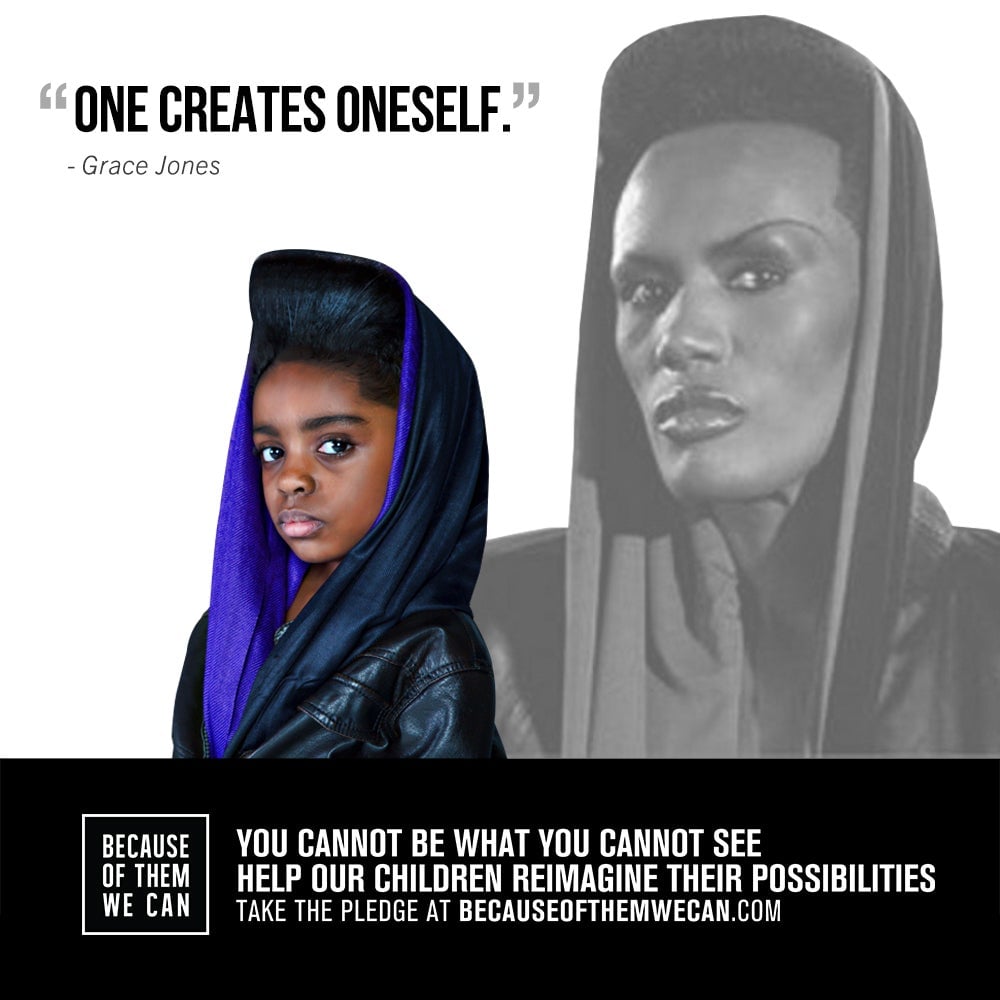
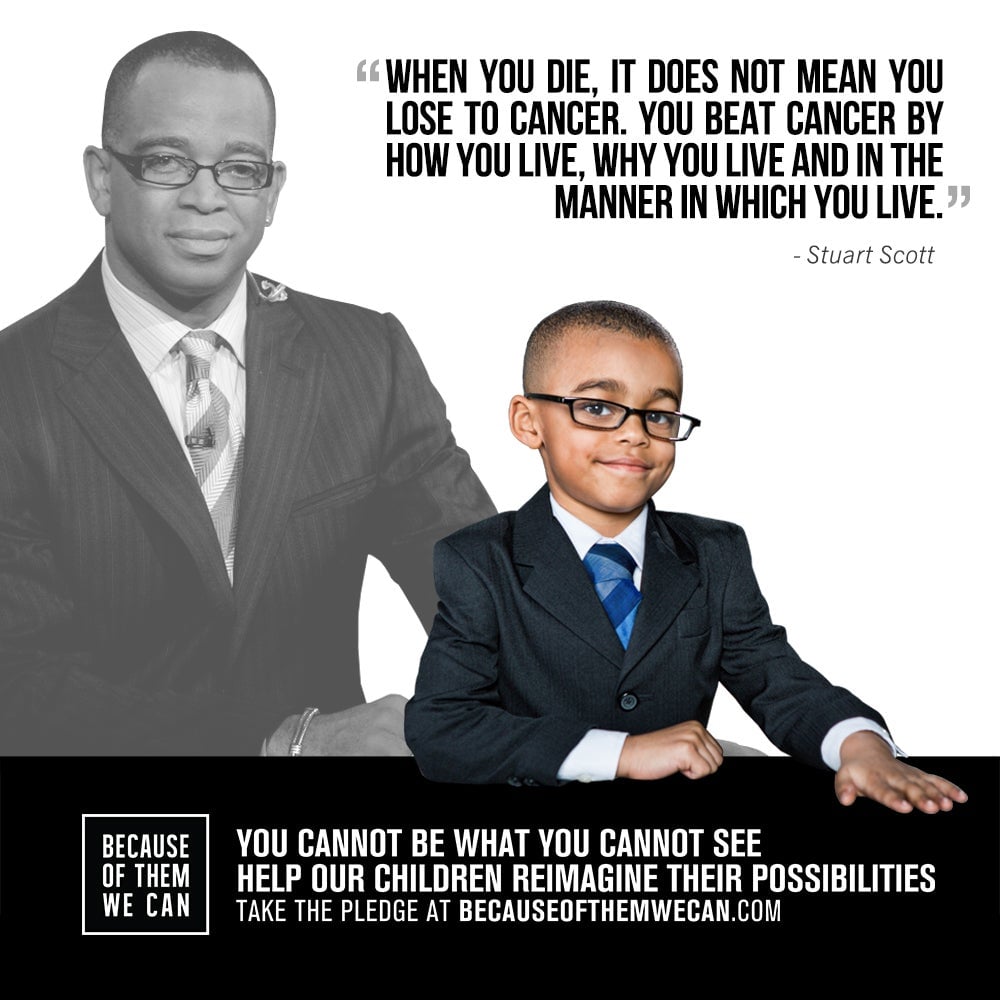
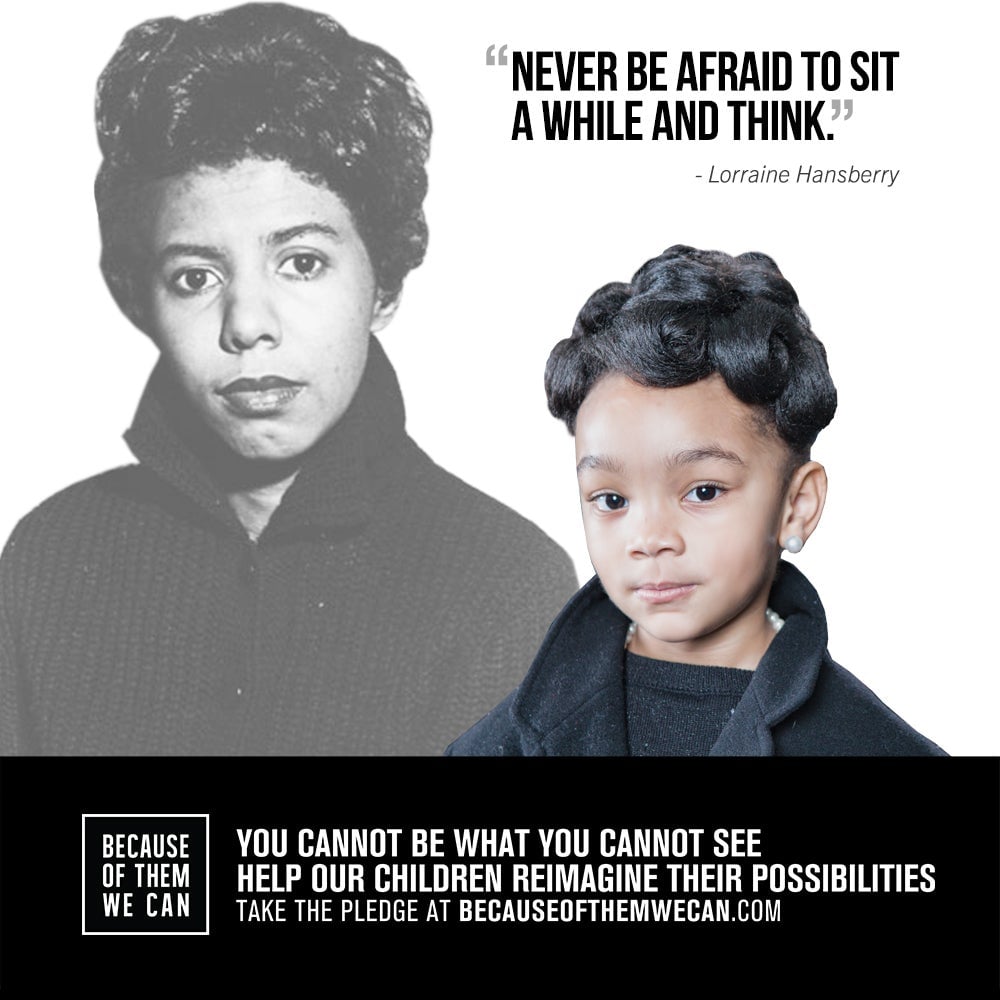
With the slogan, “You cannot be what you cannot see,” Gibson’s project emphasizes imagery to illustrate a broader point.
“I think these images tell a broader story,” Gibson told Quartz. “It shows how diverse and broad our range is. It shows that while we are talented entertainers or athletes that we are also activists and engineers, writers, presidents, innovators and leaders in various fields. When people view my photos I want them to walk away with a greater understanding and appreciation for the contributions black Americans have made. I also want people to realize that no dream or goal is beyond our reach, no matter our age.”
The decision to feature children was also purposeful. While cute, the young models juxtaposed with their older forefathers create a powerful generational parallel. But perhaps more important, the photos create an emotional connection with the viewer, capitalizing on our collective humanity.
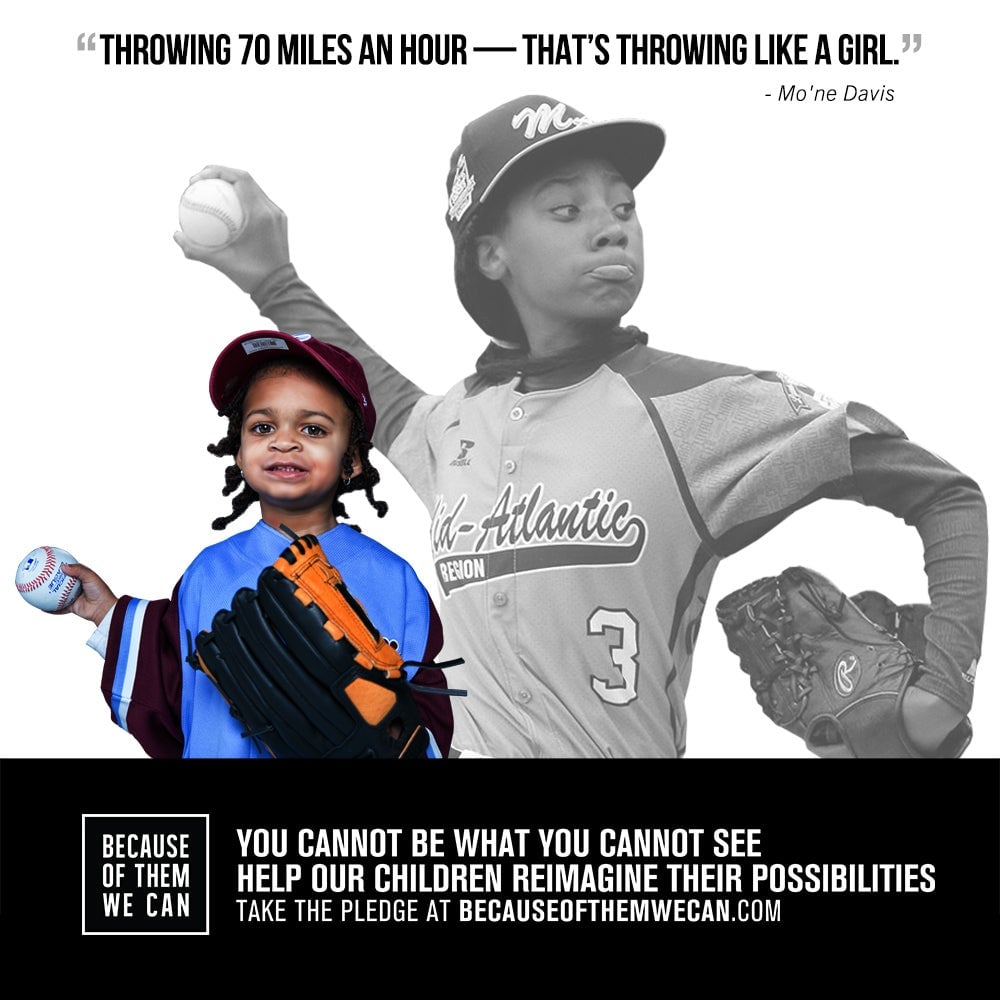
“We were all children,” Gibson noted. “Children aren’t interested in fame, likes or the vanity that adults are chasing when it comes to social media or posing for a picture in general. Children represent hope and innocence, our future. And the same potential that exists within them still exists within us.”
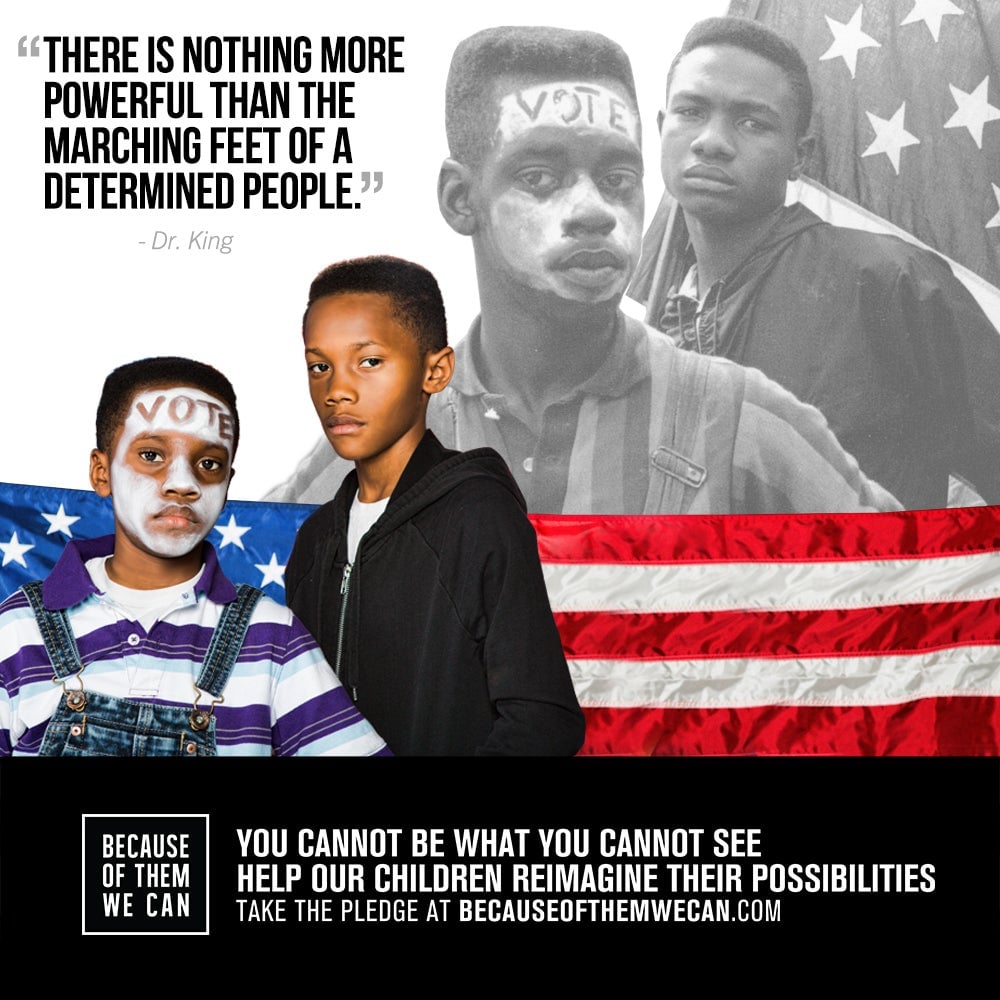
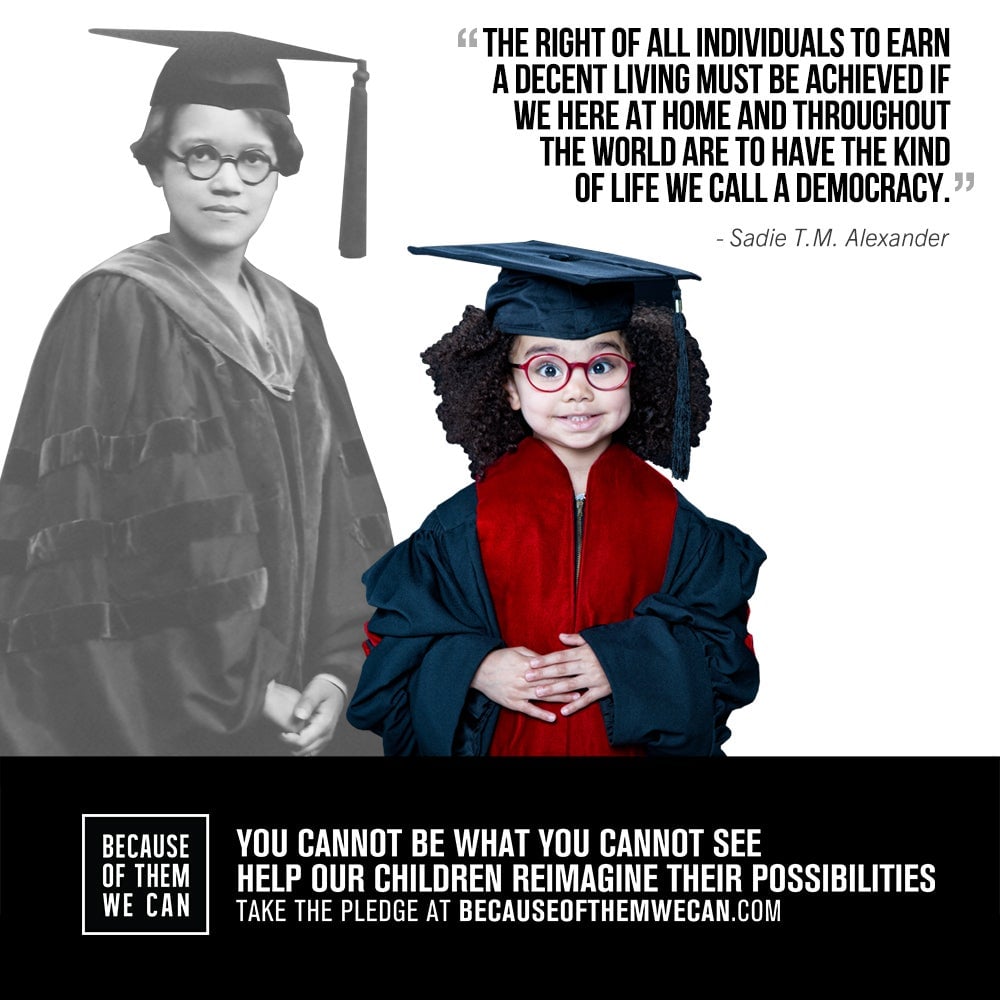
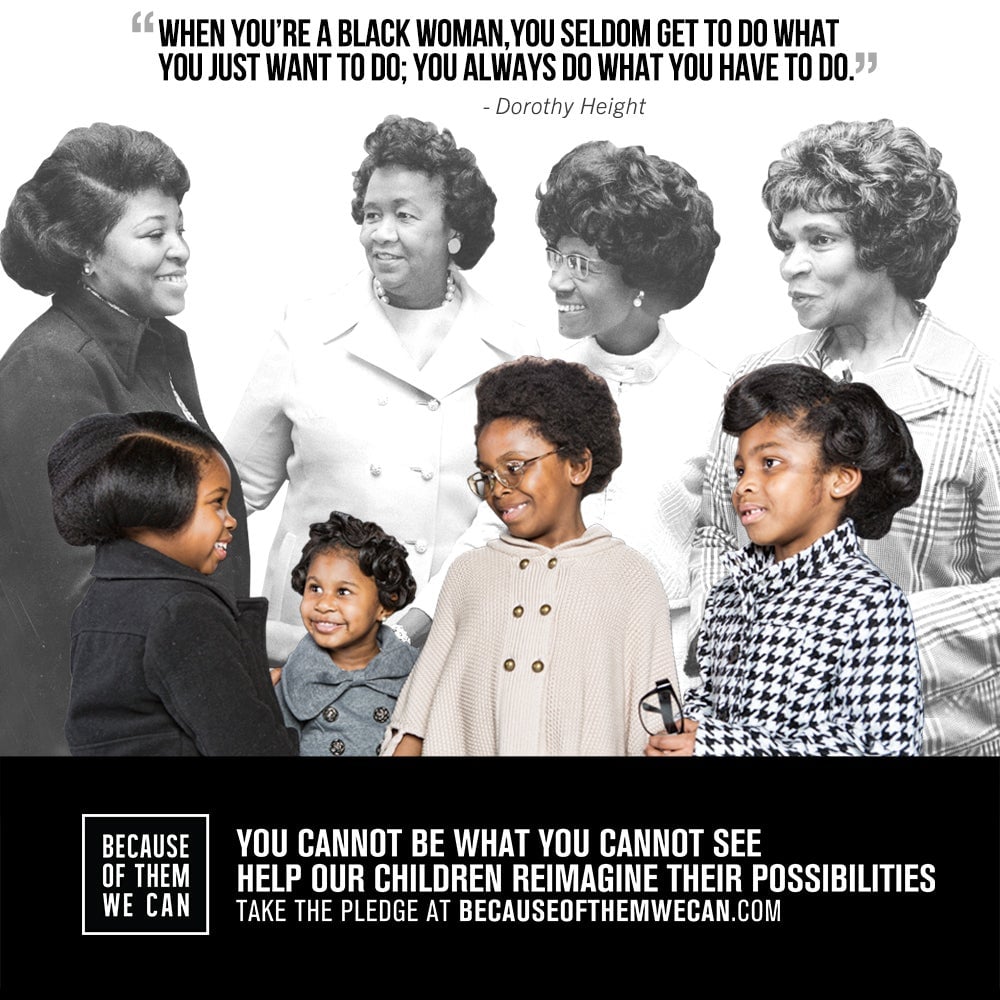
All of the child models involved are told who they are portraying and why. Gibson said watching them embrace their characters is an amazing experience in itself.
So far, reaction to Because of Them We can has been overwhelmingly positive, especially from the African American community.
“Many have been waiting for a campaign that represents our history and our future in a positive light,” Gibson said. And her son? He loves it, Gibson said. “He knows about more trailblazers than I did at his age because the book and images have piqued his curiosity.”
Gibson said her goal is to keep expanding the scope and scale of the project beyond social media. “We don’t want this to be the internet’s best kept secret,” she said. “We want people of all ages and hues who are often times ignored or misrepresented to see themselves in a positive hue. From books, to broadcast, to billboards, to classrooms and churches, our goal is to create weapons of mass empowerment that exist everywhere.”
